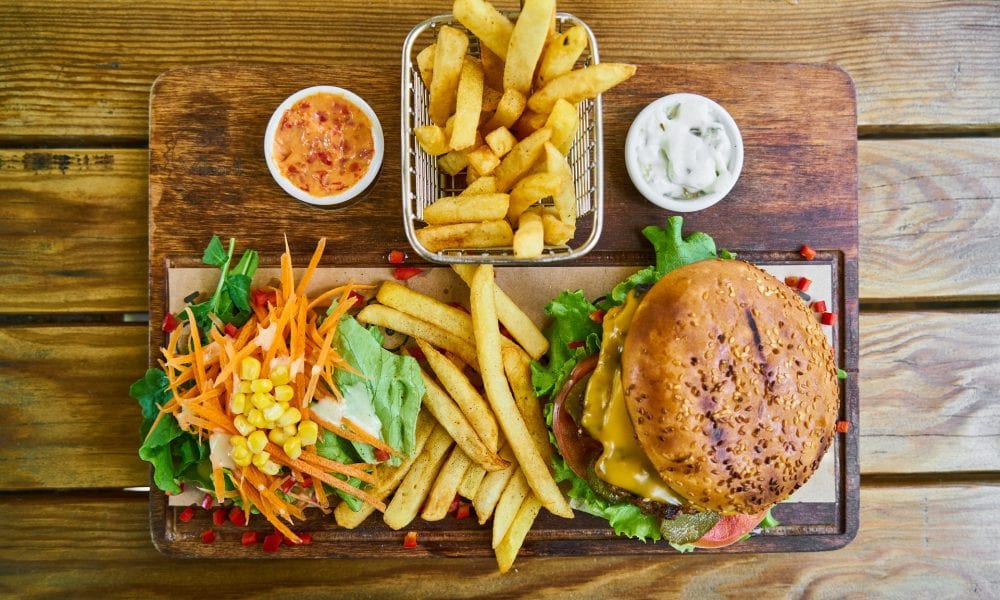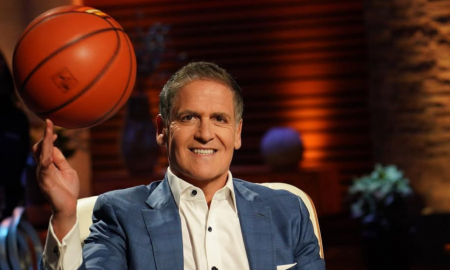
Simple and Effective Tricks for Overcoming Emotional Eating

 Do you feel yourself reaching for the cookie jar every time things get a little rough? Most people turn to food for comfort during a stressful or emotional time. Anxious? Chocolate will be your best friend. Sad? Ice cream will keep you company. Tired? A warm, cheesy pizza will help you wind down.
Do you feel yourself reaching for the cookie jar every time things get a little rough? Most people turn to food for comfort during a stressful or emotional time. Anxious? Chocolate will be your best friend. Sad? Ice cream will keep you company. Tired? A warm, cheesy pizza will help you wind down.
Once you’ve caught yourself in the act of binging, focus on how you’re feeling. If you’re sensing any negative emotions, try doing something relaxing such as yoga, meditation, getting fresh air or even reading a book.
There isn’t any emotion that food can’t fix – but excessive eating is only a short-term solution which leads to more negative emotions and guilt afterward. Moreover, emotional eating is one of the biggest obstacles in your weight-loss journey, and every time you reach for that greasy slice of pizza or devour an entire pint of ice cream, you’re only doing more damage to your health and waistline.
So, is there a way you can follow to stop your unhealthy emotional eating habit once and for all? Researchers say that a simple trick can help you develop a better relationship with food.
Embrace Cravings Instead of Avoiding Them
 Mel Wells is a health coach who has dedicated most of her career in understanding people’s eating psychology. According to her, overcoming cravings related to emotional stress or boredom can be curbed by understanding the reason behind the sudden urge to eat.
Mel Wells is a health coach who has dedicated most of her career in understanding people’s eating psychology. According to her, overcoming cravings related to emotional stress or boredom can be curbed by understanding the reason behind the sudden urge to eat.
Dieters often make the mistake of ignoring their body’s hunger cues and constantly distracting themselves with other activities so they don’t think about eating.
Avoiding the problem only makes it worse over time and the cravings often get out of control, leading to binge-eating. This is one of the reasons why people gain back weight so quickly after going off their diet.
Wells says that the key to fixing cravings is by embracing it, not by avoiding or hating it. She thinks that whenever you feel the urge to reach for unhealthy food despite knowing that you’re not really hungry, just stop and ask yourself why you need to eat that certain food. Is there a hidden emotion that you’re trying to mask?
Observe your behavior and strive towards resolving the emotions that are causing you to overeat, instead of simply giving in to the cravings.
Learning the Difference Between Hunger and Cravings
From a psychological point of view, your cravings can actually guide you towards understanding hidden emotions and help you break up from them. Even though the dieter and emotional eater damage their bodies the same way; the former by undereating and the latter by overeating, emotional cravings and hunger are two very different things.
People who experience cravings get a sudden and urgent desire to eat something, often fueled by a sense of panic. However, the cravings will subside within a few minutes if you hold your ground and don’t cave in.
Real hunger, on the other hand, manifests itself in several physical signs such as hunger pangs and weakness. Unlike emotional cravings, it doesn’t cause a sense of panic or urgency and gives you enough time to think about what you want to eat to satisfy the hunger. Try to understand whether you’re experiencing a real hunger or just an emotional one before coming to any conclusion.
Understanding Emotions Behind Overeating
 Think about the time when you used to cry as a baby and your mother would feed you in an effort to make you feel better. People learn to associate food with a sense of happiness and comfort from a very early age, but as we grow up and continuously suppress our feelings with food, emotional eating becomes a serious problem.
Think about the time when you used to cry as a baby and your mother would feed you in an effort to make you feel better. People learn to associate food with a sense of happiness and comfort from a very early age, but as we grow up and continuously suppress our feelings with food, emotional eating becomes a serious problem.
Wells says that an easy way to overcome emotional cravings is by checking up on yourself frequently and asking yourself how you’re feeling instead of numbing down emotions with food. If you’re able to pin-point a certain emotion, take a few moments to think about what you can do to resolve it without turning to the cookie jar. As you sit and think about your feelings for some time, you’ll feel the urgency of the craving dying down, until you no longer feel the urge to stuff your face with junk food.
Finding Alternative Ways to Cope with Negative Emotions
Another big obstacle people face with food is not knowing when to stop eating or preventing snack-time from turning into a full-on binge. Wells says that she always advises her clients to take advantage of that moment before eating or even during a binge where you have the power to pull yourself back and prove to yourself that you’re the one in charge, not the food.
More in Motivation
-
`
Are Mono Diets Worth It – or Just a Dangerous Trend?
As summer brings on the pressure to slim down fast, the internet lights up with diet trends promising instant results. One...
August 3, 2025 -
`
Why Motivation Is Essential for Sustainable Fitness Success
Motivation isn’t something that shows up when it’s convenient—it’s something that needs to be built, shaped, and sustained. Many people struggling...
July 27, 2025 -
`
The Mystery of Human Body Parts That Science Still Can’t Solve
The human body is a patchwork of evolutionary choices, quirks, and mysteries. From skeletal structure to the tiniest gland, everything tells...
July 18, 2025 -
`
Why a Mediterranean Diet and Exercise Slow Bone Loss in Seniors
Bone health isn’t just a concern for the elderly—it’s something that starts to matter the moment the body begins to lose...
July 12, 2025 -
`
Want Better Memory? This Diet Could Help Keep Your Brain Sharp
Losing focus, memory lapses, or slower thinking—these aren’t just normal parts of aging. While cognitive changes do happen over time, lifestyle...
July 5, 2025 -
`
The Truth About Health Tracking Apps and Their Impact on Wellness
Scroll through social media or browse the App Store, and you’ll likely spot dozens of health tracking apps. They promise everything—from...
June 29, 2025 -
`
New Study Reveals Alzheimer’s Affects the Entire Body
Most people associate Alzheimer’s with memory loss and cognitive decline, assuming its impact stays confined to the brain. But new findings...
June 21, 2025 -
`
The One Simple Habit Mark Cuban Credits for His Success
Success doesn’t come from shortcuts or luck—it’s built on habits that stand the test of time. Mark Cuban, the outspoken billionaire,...
June 14, 2025 -
`
Thinking of a Detox Diet? Read This Before You Start
Detox diets continue to be one of the most talked-about trends in the wellness space. Whether it’s juice cleanses, tea plans,...
June 8, 2025









You must be logged in to post a comment Login